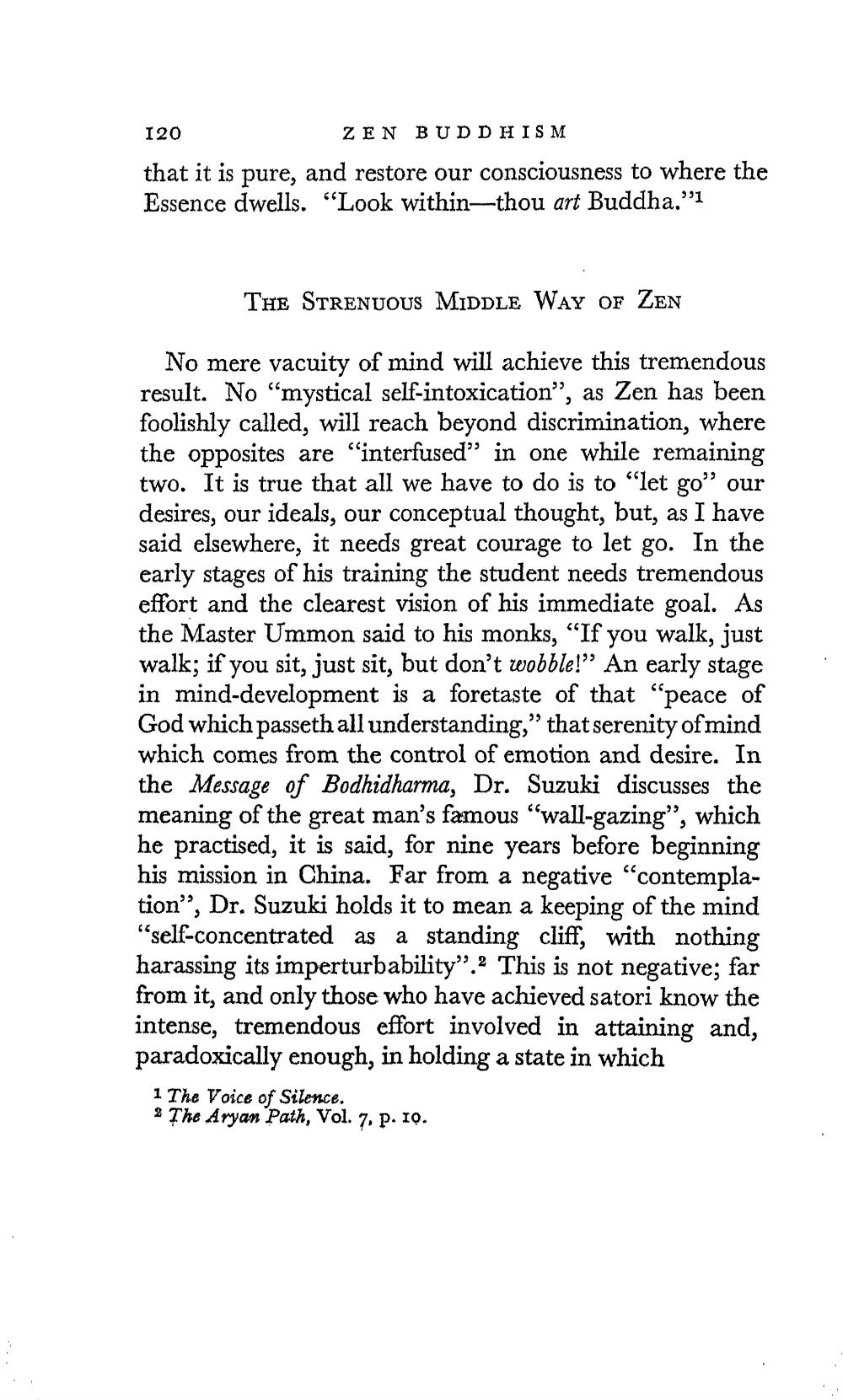________________
I20
ZEN BUDDHISM
that it is pure, and restore our consciousness to where the Essence dwells. “Look within—thou art Buddha."1
THE STRENUOUS MIDDLE WAY OF ZEN
No mere vacuity of mind will achieve this tremendous result. No "mystical self-intoxication”, as Zen has been foolishly called, will reach beyond discrimination, where the opposites are "interfused" in one while remaining two. It is true that all we have to do is to “let go" our desires, our ideals, our conceptual thought, but, as I have said elsewhere, it needs great courage to let go. In the early stages of his training the student needs tremendous effort and the clearest vision of his immediate goal. As the Master Ummon said to his monks, "If you walk, just walk; if you sit, just sit, but don't wobble!” An early stage in mind-development is a foretaste of that "peace of God which passeth all understanding," that serenity of mind which comes from the control of emotion and desire. In the Message of Bodhidharma, Dr. Suzuki discusses the meaning of the great man's famous "wall-gazing”, which he practised, it is said, for nine years before beginning his mission in China. Far from a negative "contemplation", Dr. Suzuki holds it to mean a keeping of the mind "self-concentrated as a standing cliff, with nothing harassing its imperturbability". 2 This is not negative; far from it, and only those who have achieved satori know the intense, tremendous effort involved in attaining and, paradoxically enough, in holding a state in which 1 The Voice of Silence. The Aryan Path, Vol. 7. p. Io.




